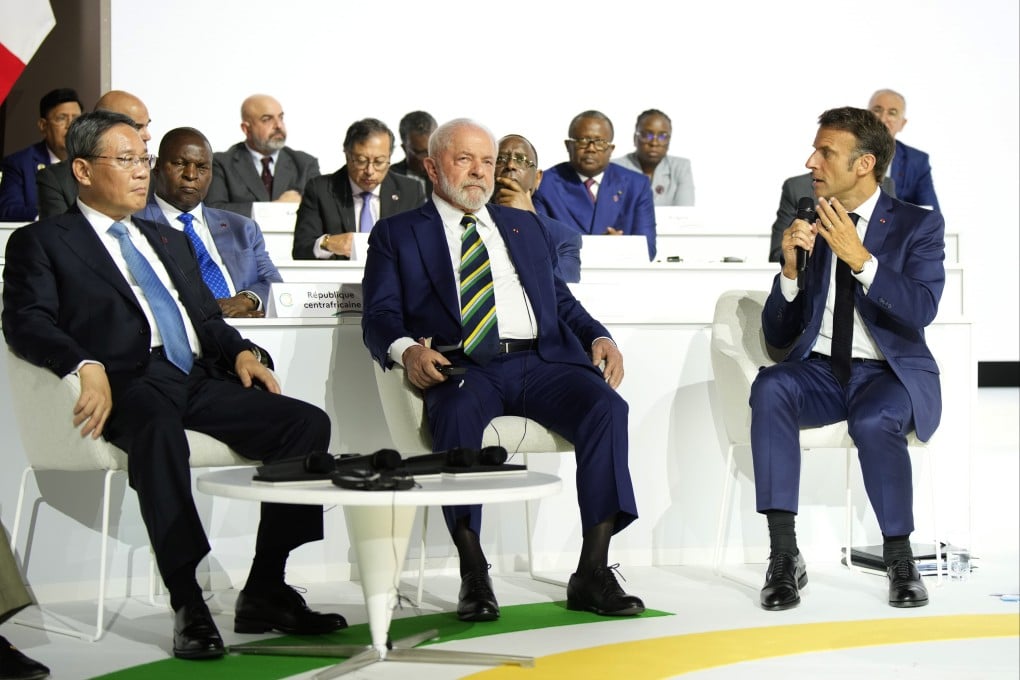Inside Out | Macron’s global financing pact for climate-vulnerable countries: just more blah, blah, blah?
- Amid climate change and growing debt, fairer global funding arrangements are needed for low-income economies
- But while the Paris summit shows the world’s rich recognise the need for a quantum change, it seems they still recoil at reforms

As Politico concluded in its summary of the much-hyped summit: “Developing nations called for a ‘transformation’ […] Western countries offered tweaks.”
There were indeed some scraps of progress worth celebrating. At the Paris summit, IMF managing director Kristalina Georgieva said the fund had reached its target of freeing up US$100 billion in special drawing rights (SDRs) for vulnerable developing countries. The World Bank announced that countries hit by climate disaster would be allowed to suspend debt repayments. Senegal sealed a €2.5 billion (US$2.7 billion) clean energy agreement backed by wealthier countries. Zambia finally reached a deal to restructure up to US$6.3 billion of its debt.
Proposals for a tax on shipping emissions reportedly gained support, and could be addressed at the International Maritime Organisation meeting next month. But more comprehensive tax proposals – ranging from taxes on polluters and fossil fuel companies to financial transactions were discretely parked.
Politico concluded that the meeting ended “barely having addressed the underlying problems” of developing countries, including their “crushing debt”. Brazil’s President Luiz Inacio Lula da Silva also hit out. “If we don’t change our institutions, the world will remain the same,” he said. “And the rich will go on being rich and the poor will go on being poor.”
